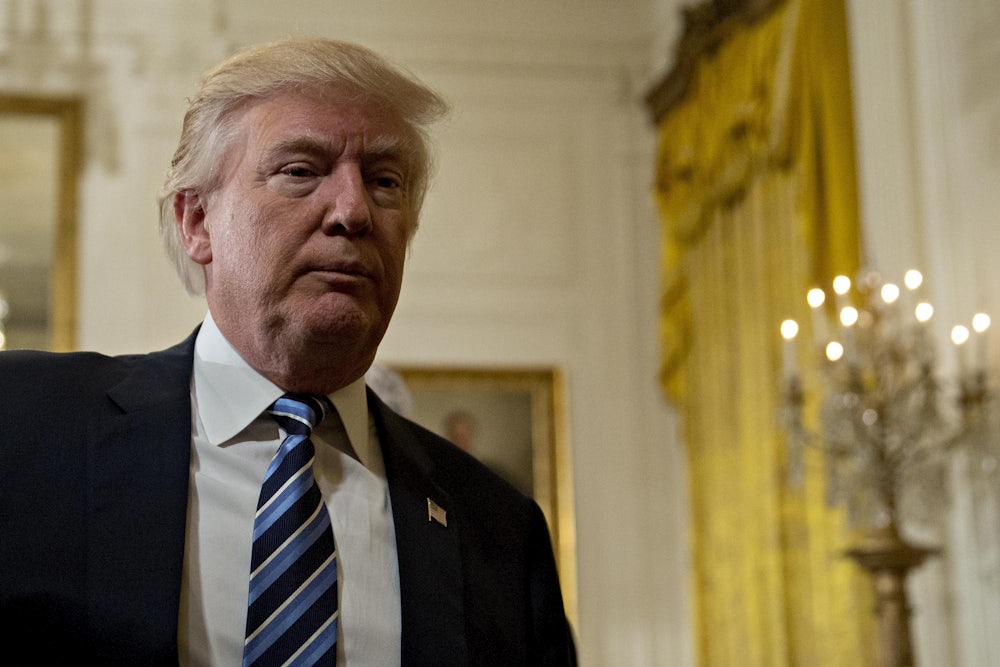Ross Douthat wrote a column for Sunday’s New York Times about his great “worry” about mainstream journalism in the age of Donald Trump: that “the press may be tempted toward—and richly rewarded for—a kind of hysterical oppositionalism, a mirroring of Trump’s own tabloid style and disregard for truth.” He added:
The problem is that all of this alarmist journalism, no less than the really fake news churned out by pro-Trump trolls and cynics, has commercial imperatives behind it. There is a large and frightened readership looking for confirmation of its darkest fears in every “unprecedented” (but often, not really) move that Trump and his administration make. These readers trust liberal-leaning mainstream outlets to deliver them the truth. But their clicks and shares will reward those outlets when they make rumor seem like certainty, or make the truth more alarming than it is.
This argument has been overtaken by events, as they say. After Trump and his lackeys spent the weekend trying to redefine truth, the president is signaling that he will enact his most extreme campaign proposals. On Wednesday, he will sign an executive order for the construction of a wall along the entire length of the U.S. border with Mexico. Several draft orders also under consideration would: halt refugees from Syria and suspend them from other majority-Muslim nations; consider whether to bring back enhanced interrogation techniques; whether to reopen CIA black sites, secret foreign locations where such techniques was used; whether to keep open the Guantanamo Bay prison; and whether to designate the Muslim Brotherhood, whose leader won a democratic election in Egypt before being ousted in a military coup, as a foreign terrorist organization.
Many pundits and politicians said Trump, as president, wouldn’t attempt such things—that he would be normalized by the seriousness of his job, and by the influence of the Republicans around him. The alarmists among us warned otherwise, and they were right. Not even a week into his presidency, Trump is proving just as “unprecedented” as we imagined. Our “darkest fears” are coming true. If you’re not “frightened,” you’re not paying attention.
